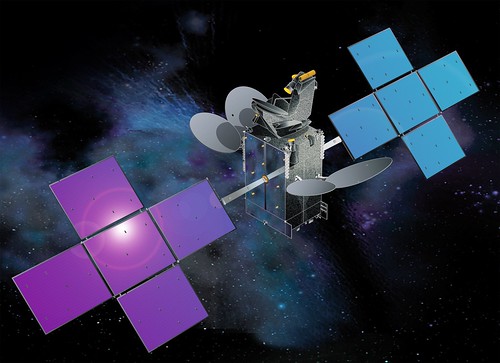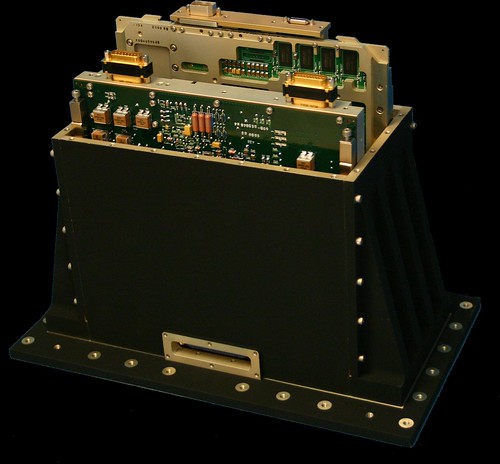The company is testing a range of features on the space-based router that launched last year on a commercial satellite in a plan to extend the Internet into space.
By Laurence Cruz
It's a common problem for emergency workers: You're at the scene of a natural disaster and you can't get a cell phone signal to save your life – or anyone else's. The hurricane, earthquake or flood has leveled cellular towers for miles. What do you do?
Cisco's IRIS technology will let you make a VoIP call over the satellite – and here's the kicker – without using any terrestrial infrastructure to route the call. That's a radical departure from current communications satellite technology, which relies on ground-based hubs to convey voice and video signals between satellites and end users. Cisco unofficially calls the capability "Dial Tone From Space," though the moniker is not technically accurate.
"But it's emotionally accurate," says Greg Pelton, general manager of Cisco's IRIS (Internet Routing in Space) program.
The feature is the latest in a batch of applications the company is testing on the Intelsat 14 communications satellite that blasted into space a year ago with a Cisco router on board – an industry first. Other apps undergoing testing include IP (Internet Protocol) multicasting and hardware-based encryption of IP flows to and from the satellite, Pelton says.
Cisco wants to eventually offer these and other features as services to businesses and the U.S. government, which successfully tested IRIS for military purposes during Intelsat 14's first trimester in orbit. It's all part of an ambitious Cisco plan to transform satellite networks, growing a potentially massive new market by putting routers on the numerous communications satellites that orbit our planet, thus extending the Internet into space. Benefits will include the ability to route voice, data and video traffic between users over a single IP network in ways that are more efficient, flexible and cost effective than is possible over today's fragmented satellite communications networks, Cisco says.
For now, IRIS is still in a testing phase that is chockfull of firsts. Case in point, the "Dial Tone From Space" feature successfully tested in October was the first use of Cisco Unified Communications Manager Express to make a VoIP phone call via a router in space, Pelton says. (The technology is more commonly used as an IP-based telephone exchange system in branch offices.)
In another first in October, Cisco updated the software in the router aboard Intelsat 14, effectively "turning on" a variety of capabilities already available for Cisco's terrestrial products and making them available in space, Pelton says. That's a revolutionary concept in an industry where satellite operators generally don't have the luxury of changing a payload post launch, and it opens IRIS to the full richness of Cisco's IOSTM software, he says.
"I can't think of any other case where satellites have had their capabilities improved over time with software changes. Normally, whatever you fly is what you get."
"I can't think of any other case where satellites have had their capabilities improved over time with software changes," Pelton says. "Normally, whatever you fly is what you get."
Pelton says Cisco is seeing great interest in IRIS from business customers as well as those more focused on the program's military applications. In testing last spring, for example, NATO was so impressed with IRIS that the organization extended its contract a month beyond the initial three-month agreement. And in July, Cisco teamed up with European space giant Astrium to explore what space-based routing could mean for that company's customers, Pelton says.
In October, Cisco and Astrium successfully demonstrated IRIS services such as multicasting, enabling the delivery of information to a group of destination computers simultaneously in a single transmission. Multicasting would make it possible for a drone to simultaneously send video of the enemy to the different groups that need it – such as personnel in a command center and troops on the ground, Pelton says.
"It gets the information to the people that need it quicker," he says.
The next big milestone for IRIS is moving from testing to full commercial service on Intelsat 14, which Cisco hopes will happen some time in 2011 Pelton says. The milestone after that will be selling additional routers for use in space.
Pelton says some businesses are already asking to use IRIS services on Intelsat 14, even though the program is still in its testing phase.
"It's happening earlier than we anticipated," Pelton says. "We didn't think we had to worry about that until 2011, but it's a good problem to have."
Laurence Cruz is a freelance writer in Los Angeles.


No comments:
Post a Comment